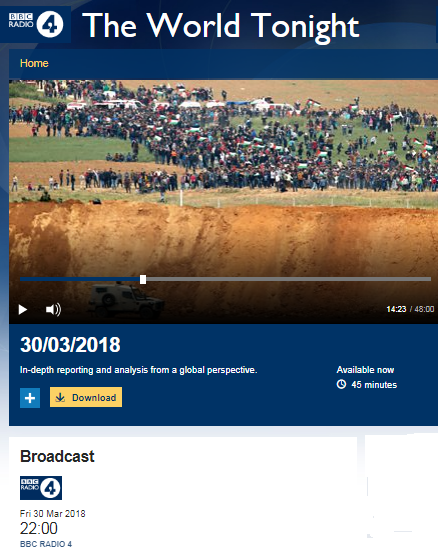Last week a UK online newspaper called ‘i News’ published an interview with the BBC’s Lyse Doucet on the subject of the war in Syria.
“Lyse Doucet, award-winning journalist and Chief International Correspondent for the BBC, has been on the ground watching the Syrian conflict evolve with increasing alarm over the past seven years. […]
Never has journalism played such a vital role in establishing the truth, yet never has reporting from the front lines carried a greater risk. Here, she tells i the key things she has learned out in the field – and why some stories are worth risking your life for.”
Under the sub-heading “The most dangerous part of the Syrian war is yet to come”, readers were told in no uncertain terms that an attack on a military base in Syria on April 30th was carried out by Israel – even though neither Doucet nor anyone else has yet produced concrete evidence to support that claim.
Doucet – who is apparently unfamiliar with the name of the scale used to measure the magnitude of earthquakes – also attributed activity recorded at the time to ‘Israeli bombs’:
 Doucet’s version of events completely ignores the relevant factor of the attack’s target.
Doucet’s version of events completely ignores the relevant factor of the attack’s target.
“The explosion in Syria’s Hama province late Sunday night, which has been attributed to an Israeli airstrike, registered 2.6 on the Richter scale — a small earthquake, the kind that won’t knock down a building, but might knock a picture off your shelf.
The epicenter of this tremor was a military base south of the city of Hama, which is connected to the Syrian military’s 47th Brigade and has been identified by Syrian opposition sources as being under Iranian control and housing a weapons depot. […]
The massive explosion near Hama, which could be felt and seen throughout the area, was not likely caused by the missile or rocket used, but by the target that was hit.
“It may be ballistic missiles with heavy warheads. The level of explosion that even moved the needle of an earthquake detector is not from the munition that attacked these places, but from the target,” said Amos Yadlin, a former head of Military Intelligence and the current director of the influential Institute for National Security Studies think tank.”
Whether or not that strike – in which some 200 surface-to-surface missiles were reportedly destroyed – was carried out by Israel remains unclear. Nevertheless, the BBC’s chief international correspondent – who is supposedly committed to accurate and impartial journalism – obviously has no qualms about presenting her personal speculations as fact.




